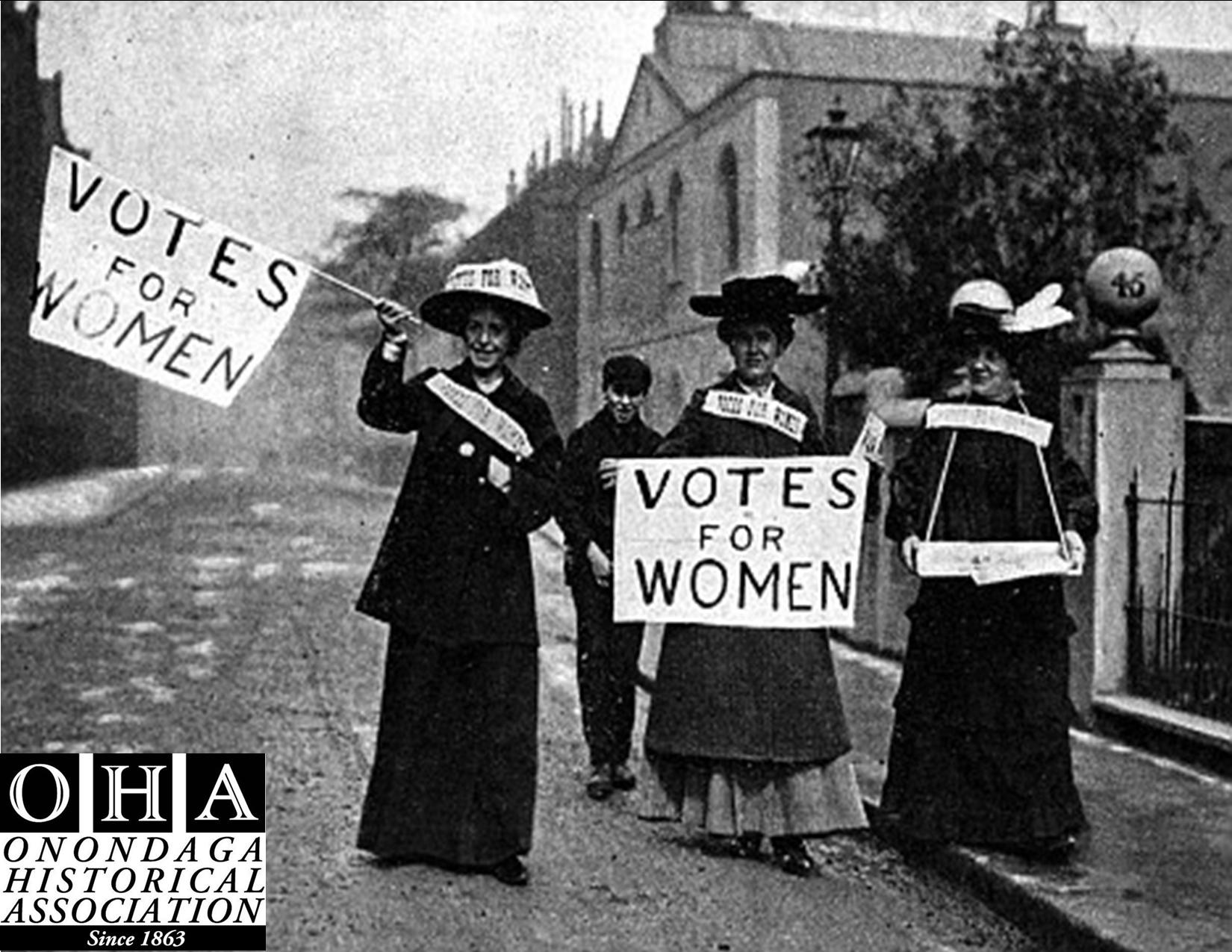
Over 70 years after the Seneca Falls Convention brought the Women’s Suffrage Movement to the nation’s attention in 1848, women were still fighting for their right to vote well into the 20th century. However, their efforts paid off nationally when, on May 21st, 1919, the Susan Anthony Amendment, granting the women the right to vote, was proposed by U.S. Representatives and chairman of the Suffrage Committee, James R. Mann (R-Illinois) and passed with an overwhelming majority of 304 to 89.
On June 4th, 1919, the Senate, which requires a two-thirds majority, passed the Amendment by a vote of 56-25. The States were next to approve the amendment, which many did in fairly short order. However, it would take over a year for two-thirds of the States to ratify the amendment. On August 18th, 1920, Tennessee became the 36th state to ratify, and they did so by one vote in the State Legislature. The 19th Amendment was officially certified by U.S. Secretary of State, Bainbridge Colby, on August 26th, 1920. A few months later, over 8 million women voted for the first time.
Unfortunately, many of the founding women of the suffrage movement, who include Onondaga County’s Matilda Joslyn Gage, Johnstown, NY’s Elizabeth Cady Stanton, and Massachusetts’ Susan B. Anthony, were not able to see the fruit of their labor.
10 years after the vote, those local women who were left that played a role in the movement were honored at the Hotel Syracuse on March 26th, 1930.
Syracuse Veterans of Memorable Battle That Won Suffrage for Women Gather in Syracuse
About local Suffragist, Matilda Joslyn Gage
Gage was born on March 24th, 1826, in Cicero, New York. An only child, she was raised in a household dedicated to antislavery. Her father, Dr. Hezekiah Joslyn, was a nationally known abolitionist, and the Joslyn home was a station on the Underground Railroad.
Matilda and her husband, Henry Hill Gage, settled in Fayetteville, New York. “Their home became a station on the Underground Railroad and although occupied with both family and antislavery activities, Gage was drawn to a new cause: the woman’s suffrage movement. Her life’s work would become the struggle for the complete liberation of women.
Unable to attend the first Woman’s Rights Convention held in Seneca Falls in 1848, Gage attended and addressed the third national convention in Syracuse in 1852. She became a noted speaker and writer on woman’s suffrage.
Gage, along with Susan B. Anthony and Elizabeth Cady Stanton, was a founding member of the National Woman Suffrage Association and served in various offices of that organization (1869-1889). She helped organize the Virginia and New York state suffrage associations, and was an officer in the New York association for twenty years. From 1878 to 1881 she published the National Citizen and Ballot Box, the official newspaper of the NWSA.
In 1871 Gage was one of the many women nationwide who unsuccessfully tried to test the law by attempting to vote. When Susan B. Anthony successfully voted in the 1872 presidential election and was arrested, Gage came to her aid and supported her during her trial. In 1880 Gage led 102 Fayetteville women to the polls in 1880 when New York State allowed women to vote in school districts where they paid their taxes.
During the 1870s Gage spoke out against the brutal and unfair treatment of Native Americans. She was adopted into the Wolf Clan of the Mohawk nation and given the name Ka-ron-ien-ha-wi (Sky Carrier). Inspired by the Six Nation Iroquois Confederacy’s form of government, where “the power between the sexes was nearly equal,” this indigenous practice of woman’s rights became her vision.
Gage co-edited with Stanton and Anthony the first three volumes of the six-volume The History of Woman Suffrage(1881-1887). She also authored the influential pamphlets Woman as Inventor (1870), Woman’s Rights Catechism (1871), and Who Planned the Tennessee Campaign of 1862? (1880).
Discouraged with the slow pace of suffrage efforts in the 1880s, and alarmed by the conservative religious movement that had as its goal the establishment of a Christian state, Gage formed the Women’s National Liberal Union in 1890, to fight moves to unite church and state. Her book Woman, Church and State (1893) articulates her views.
While Gage remained a supporter of woman’s rights throughout her life, she spent her elder years concentrating on religious issues.
Gage died in Chicago, Illinois, on March 18, 1898. Her lifelong motto appears on her gravestone in Fayetteville: “There is a word sweeter than Mother, Home or Heaven; that word is Liberty.”

